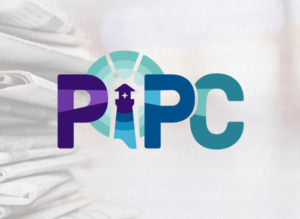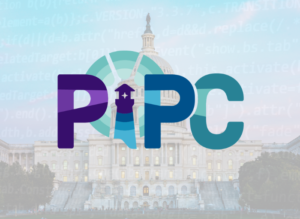FOR IMMEDIATE RELEASE
WASHINGTON, D.C. –
The Public Interest Privacy Center (PIPC) is pleased to announce the release of its new series, “Fixing FERPA,” which explores the current challenges of implementing the 50-year-old Family Educational Rights and Privacy Act (FERPA) – the U.S.’s primary student privacy law – in modern classrooms, and proposes actionable solutions to revamp FERPA’s privacy protections for the 21st century.
The "Fixing FERPA" series currently includes FERPA 101 FAQs, guides to FERPA’s Exceptions and Exemptions, and the first five critical recommendations:
- Distinguishing Between Core and Secondary Technology Uses
- FERPA’s all-or-nothing data protections fail to distinguish between data that is collected for critical and supplemental purposes, posing challenges in modern educational settings. This recommendation explores amending FERPA to differentiate core and secondary technology uses, which would enhance parental consent mechanisms while maintaining essential educational functions and privacy safeguards.
- Enhancing EdTech Accountability
- FERPA currently allows sharing student data with teachers and edtech companies under the same exception, causing confusion and potential privacy violations. The recommendation calls for statutory changes to add more accountability safeguards and to create distinct exceptions for educators and third parties.
- Clarifying Data Sharing Through a Defined Pedagogical Exception
- The recommendation argues for an explicit pedagogical exception to FERPA, clarifying that teachers can share student PII for educational purposes without violating privacy laws. Current practices rely on an implied exception, causing uncertainty. Specified guidelines would ensure necessary classroom disclosures while protecting students’ data.
- Strengthening Transparency & Confidence in FERPA Enforcement
- This recommendation dispels the myth that FERPA is toothless by highlighting the Department of Education's extensive, yet often unseen, enforcement efforts. To increase accountability and public trust, the report recommends mandatory reporting on FERPA-related activities, including complaint resolutions and technical assistance metrics.
- Increasing Transparency to Make FERPA’s Privacy Protections More Meaningful
- This recommendation details why schools must clearly communicate their data collection and privacy policies to allow parents and eligible students to exercise their FERPA rights effectively.
“As we navigate an increasingly digital education landscape, it's crucial that our privacy laws evolve to keep pace with new technologies and challenges,” said Amelia Vance, President of PIPC and Chief Counsel of the Student and Child Privacy Center at AASA, the School Superintendents Association. “Adjusting FERPA to meet contemporary needs is not just a matter of convenience but a crucial step towards providing students with the benefits of new technologies and data uses while ensuring safer learning environments.”
Vance continued, “This series aims to break down FERPA’s complexities in an accessible way and to spark a much-needed dialogue about how policymakers can address FERPA’s flaws to better protect student privacy in practice.”
“This series couldn't come at a better time, as we navigate the complexities of safeguarding student information in today's technologically advanced educational environments,” said Noelle Ellerson Ng, Associate Executive Director of Advocacy & Governance at AASA, The School Superintendents Association. “The ‘Fixing FERPA’ publications are an excellent resource to restart a necessary public discussion, and for policymakers to think deeply about solutions for updating FERPA to better protect student privacy in today’s educational landscape.”
Additional “Fixing FERPA” recommendations will continue to be released by PIPC over the next several months, paving the way for ongoing discussions and collaborations that will shape a more secure educational environment.
###
About PIPC
Founded in 2022, the Public Interest Privacy Center is a nonprofit organization that equips stakeholders with the insights, training, and tools needed to cultivate effective, ethical, and equitable privacy safeguards for all children and students. Our vision is that high-impact stakeholders at every tier will have the information and tools necessary to protect all children’s fundamental right to privacy. By educating and equipping high-impact groups and fostering a culture of privacy, PIPC helps create an environment where all children will enjoy privacy-protected benefits of emerging technologies and data use.


